I'm gonna be perfect from now on. I'm gonna be perfect starting ... now
I'm worried about my Lesbian Studies class. It's not group therapy yet, but it is a place to mockingly call out stereotypical labels just to remind the class what queer activists are allowed to say and no one else. OK, so maybe I'm reading too much into it. It is only the second week, so there could be fields of insight we've yet to plow. (From now on, I only speak in sexual metaphors.)
I'm just about as liberal as they come. I'm further left/libertarian than the Dalai Lama and Nelson Mandela, according to the political compass. I want all sexualities and genders and whatnot to be accepted as part of the great tapestry we know as humankind. But I get really tired of the contradictory and often anemic nature of gender studies and examinations of what it means to be gay or lesbian or bi or trans. As an academic endeavor, I expect to study the nature of certain things in order to come to cohesive conclusions and make feasible hypotheses. I expect to be challenged to think about meaning and its effect on the world. I expect to learn more than trivia or hear sweet love stories to prove that -- yes, fellas -- it's about more than just the hot lesbian sex.
But when it comes to studying lesbianism itself and the historical, cultural, societal, scientific, philosophical and psychological connections to it, it seems that -- for now -- we are content with just watching films about lesbians or reading essays by lesbians about the time they came out (or didn't). We talk a little about the history of the gay rights movement. We bitch that some people can't get over the butch/femme dichotomy. We praise Madonna as if she's the greatest cone-boobed artist to hit the Rainbow District. We convince ourselves that lesbianism is mostly political and is an effective "fuck you" to The Man. We urge people to throw out categories and just let humans be humans as if that alone will remove all judgment from society's eyes.
But we never step outside our little box in Peck Hall to consider other ... um ... considerations ... that affect how lesbianism is perceived in our society. For example, when a classmate was talking about something (I forgot her point), she mentioned how -- even if a monogomous lesbian couple was raising children from different previous marriages and one parent got sick -- insurance benefits would not extend to the other partner because she was not a husband.
But this scenerio is completely overlooking what puts the couple in such a desperate situation to begin with: the fact that in this country, one only has rights to healthcare if one can fork over the money. As a result of this capitalist healthcare system, insurance companies have emerged as really the only way most Americans can afford healthcare. So is the real tragedy in America that gay couples can't get insurance? Or that Americans can't get healthcare without jumping through hoops or selling their plasma in alarming amounts?
This question didn't even come up. It crossed my mind, but instead of exiting my mouth, it got me to think about other situations where the sources of oppression aren't necessarily ones that exist solely to discriminate against the lesbian.
We talked briefly about the metrosexual phenomenon, and how it is no more than co-opting gay male culture to put straight men in a position where they can get laid. But no one seemed to have a problem with consumer capitalism in general -- the kind in which trends and culture are dictated by advertising and the media, not by people themselves. This advertising-saturated system co-opts everything that is fringe and exploits it to make money and to keep people distracted long enough to become obsessed with buying and acquiring and not with feeling and creating.
I guess I can't expect a political science/history/science/psychology/philosophy/etc. course out of this. But I do expect more than just a three-hour chunk of musing each week -- musing about what's acceptable for women and what's acceptable for men and how lesbians try to get around both. I think the discourse -- at least for those who are genuinely interested -- passed that point long ago.
Also, and I guess I'm a complete bitch for saying this, but while we were watching a Swedish documentary of older European lesbians, so many women in the class were cooing and ooing and aahhing and saying things like, "They are so cute" to still black-and-white shots of lesbian couples back in the '50s, or video footage of present-day older lesbians dancing. I found it to be incredibly patronizing. It sounded as if they were watching a documentary on puppies or something -- not living, breathing human beings and their intense, adult connections.
I have two theories about why so many in my class felt the need to make their squishy feelings heard.
1. As a knee-jerk politically correct action. You know, if I make it audible that I think these relationships are cute, everyone will know that I empathize with these lesbian couples. Everyone will know what a socially progressive person I am.
2. As a coverup of insecurity of their own. Cooing at something is a distanced way to interact with things that aren't necessarily easy to understand or access (think animals and babies). Perhaps some of the lesbians in the class aren't as comfortable with their own sexual identities as they would have us believe, and oohing at real lesbians on screen allows them to explore their own feelings of different-ness.
I'm worried about my Lesbian Studies class. It's not group therapy yet, but it is a place to mockingly call out stereotypical labels just to remind the class what queer activists are allowed to say and no one else. OK, so maybe I'm reading too much into it. It is only the second week, so there could be fields of insight we've yet to plow. (From now on, I only speak in sexual metaphors.)
I'm just about as liberal as they come. I'm further left/libertarian than the Dalai Lama and Nelson Mandela, according to the political compass. I want all sexualities and genders and whatnot to be accepted as part of the great tapestry we know as humankind. But I get really tired of the contradictory and often anemic nature of gender studies and examinations of what it means to be gay or lesbian or bi or trans. As an academic endeavor, I expect to study the nature of certain things in order to come to cohesive conclusions and make feasible hypotheses. I expect to be challenged to think about meaning and its effect on the world. I expect to learn more than trivia or hear sweet love stories to prove that -- yes, fellas -- it's about more than just the hot lesbian sex.
But when it comes to studying lesbianism itself and the historical, cultural, societal, scientific, philosophical and psychological connections to it, it seems that -- for now -- we are content with just watching films about lesbians or reading essays by lesbians about the time they came out (or didn't). We talk a little about the history of the gay rights movement. We bitch that some people can't get over the butch/femme dichotomy. We praise Madonna as if she's the greatest cone-boobed artist to hit the Rainbow District. We convince ourselves that lesbianism is mostly political and is an effective "fuck you" to The Man. We urge people to throw out categories and just let humans be humans as if that alone will remove all judgment from society's eyes.
But we never step outside our little box in Peck Hall to consider other ... um ... considerations ... that affect how lesbianism is perceived in our society. For example, when a classmate was talking about something (I forgot her point), she mentioned how -- even if a monogomous lesbian couple was raising children from different previous marriages and one parent got sick -- insurance benefits would not extend to the other partner because she was not a husband.
But this scenerio is completely overlooking what puts the couple in such a desperate situation to begin with: the fact that in this country, one only has rights to healthcare if one can fork over the money. As a result of this capitalist healthcare system, insurance companies have emerged as really the only way most Americans can afford healthcare. So is the real tragedy in America that gay couples can't get insurance? Or that Americans can't get healthcare without jumping through hoops or selling their plasma in alarming amounts?
This question didn't even come up. It crossed my mind, but instead of exiting my mouth, it got me to think about other situations where the sources of oppression aren't necessarily ones that exist solely to discriminate against the lesbian.
We talked briefly about the metrosexual phenomenon, and how it is no more than co-opting gay male culture to put straight men in a position where they can get laid. But no one seemed to have a problem with consumer capitalism in general -- the kind in which trends and culture are dictated by advertising and the media, not by people themselves. This advertising-saturated system co-opts everything that is fringe and exploits it to make money and to keep people distracted long enough to become obsessed with buying and acquiring and not with feeling and creating.
I guess I can't expect a political science/history/science/psychology/philosophy/etc. course out of this. But I do expect more than just a three-hour chunk of musing each week -- musing about what's acceptable for women and what's acceptable for men and how lesbians try to get around both. I think the discourse -- at least for those who are genuinely interested -- passed that point long ago.
Also, and I guess I'm a complete bitch for saying this, but while we were watching a Swedish documentary of older European lesbians, so many women in the class were cooing and ooing and aahhing and saying things like, "They are so cute" to still black-and-white shots of lesbian couples back in the '50s, or video footage of present-day older lesbians dancing. I found it to be incredibly patronizing. It sounded as if they were watching a documentary on puppies or something -- not living, breathing human beings and their intense, adult connections.
I have two theories about why so many in my class felt the need to make their squishy feelings heard.
1. As a knee-jerk politically correct action. You know, if I make it audible that I think these relationships are cute, everyone will know that I empathize with these lesbian couples. Everyone will know what a socially progressive person I am.
2. As a coverup of insecurity of their own. Cooing at something is a distanced way to interact with things that aren't necessarily easy to understand or access (think animals and babies). Perhaps some of the lesbians in the class aren't as comfortable with their own sexual identities as they would have us believe, and oohing at real lesbians on screen allows them to explore their own feelings of different-ness.





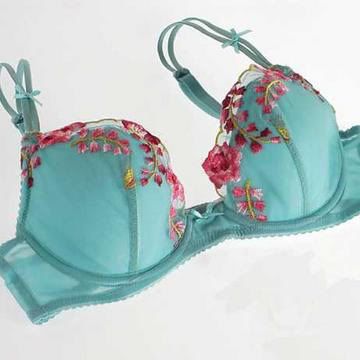

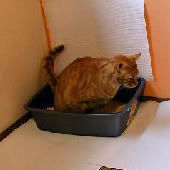



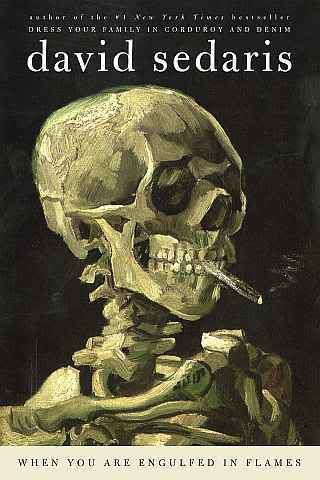
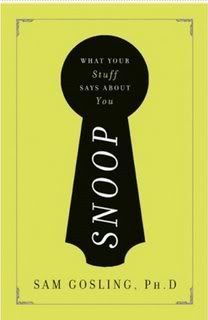

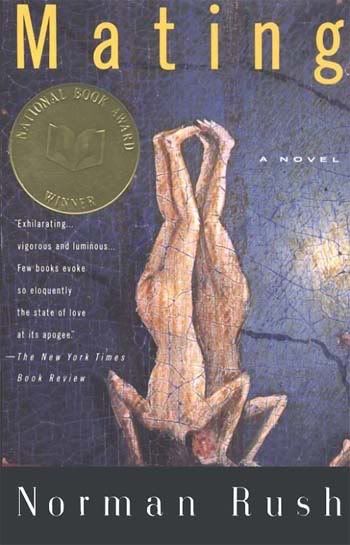





0 Comments:
Post a Comment
<< Home